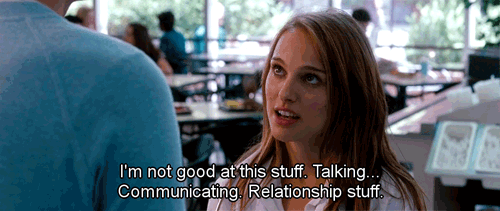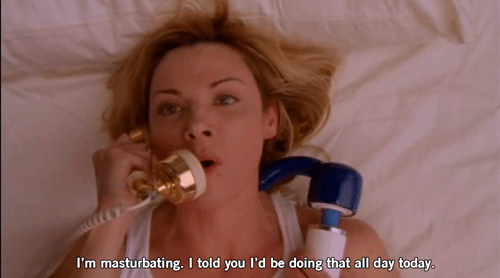
Getting Over A Break Up
Getting over a break up is like getting over a hangover. Everyone wants a remedy, a quick-fix, or a secret way to bypass the discomfort.
Experts will tell you they know a five-step program that’s guaranteed to help you successfully get over a break up. Others will supply you with endless lists of things to do such as journaling, exercising, or even burning an effigy of your ex.
There’s at least a little bit of worth in  every “getting over a break up” remedy, but each one will only offer you temporary relief from the discomfort, endless thoughts and analysis, and loneliness that accompanies any break up. That’s why there are so many remedies. When one fails, you can just jump over and try another in an endless cycle of dissatisfaction.
every “getting over a break up” remedy, but each one will only offer you temporary relief from the discomfort, endless thoughts and analysis, and loneliness that accompanies any break up. That’s why there are so many remedies. When one fails, you can just jump over and try another in an endless cycle of dissatisfaction.
In the end, as much as we don’t like to acknowledge it, just like a hangover, the only thing that gets us over a break up is good, old-fashioned, deeply-frustrating, patience-requiring time.
HOWEVER, while we are waiting for that time to pass, there are some helpful things that you can do to make things easier on yourself. One of those things includes understanding why you’re struggling in the first place. Once you know why you’re struggling, it’s easier to weed out the bullshit remedies and find ones that are actually helpful.
Why do break ups feel so uncomfortable on a physical level?
Human beings are biologically wired to like stability. We instinctively gravitate towards it, work to create it, and fight to protect it. Not only do we like for our internal systems to be stable, but we like our external environments to be stable as well. Why? Because back in the caveman days, a lack of stability threatened our chances of survival. Therefore, we are biologically wired so that when stability drops, we feel a sense of anxiety. It is believed that this anxiety is there to prompt us to rebuild or bolster stability until things feels safe and secure again.
 Now, back to the present day, we may rationally know that a break up usually doesn’t threaten our survival. The problem is that our body (and inner reptilian brain) doesn’t know that. It treats a break up the same way it would treat the realization that our entire food supply gathered for winter was eaten by another animal. Our stability has been compromised, and anxiety will ensue until that stability has been regained.
Now, back to the present day, we may rationally know that a break up usually doesn’t threaten our survival. The problem is that our body (and inner reptilian brain) doesn’t know that. It treats a break up the same way it would treat the realization that our entire food supply gathered for winter was eaten by another animal. Our stability has been compromised, and anxiety will ensue until that stability has been regained.
Today, various things in our lives contribute to our overall feeling of emotional stability and security. These things might include:
- Relationships with friends
- Relationships with our families
- A sense of security in our occupations
- A relationship with a therapist or counselor
- A sense of confidence and mastery we get from engaging in favorite hobbies
- Stability we feel from engaging in daily routines and rituals
- How well we’re doing with our finances or how much money we have in the bank
- Our physical health through exercising, eating, and sleeping well
- A connection to some sort of spiritual or mysterious other
- and, of course, our relationship with a romantic partner
The Stability Game
To illustrate the concept of stability further, let’s play The Stability Game.
Pretend I give you 100 Stability Tokens and ask you to allocate these 100 tokens to each of the 10 bullet items – or Life Categories – listed above. The game rules specify that you must allocate at least one token to each Life Category. To win the game you must hold on to as many stability tokens as possible because: the higher the tokens, the lower your anxiety level. If one of the specified Life Categories is threatened in the game, you will lose all the tokens allocated to that particular category.
So, knowing the rules, you might choose to disperse your 100 Stability Tokens equally across the 10 Life Categories, allocating 10 tokens to each (10 x 10 = 100 for all you geniuses out there). Strategically, this is the safest move because if one of the 10 Life Categories is damaged or destroyed in the game, you will only lose a maximum of 10 tokens. Your overall stability may be reduced by 10%, but you will still have 90% of your stability allocated to other Life Categories, and you could probably rebuild that 10% in a fairly short amount of time.
However, if you decided to put 1 token into 9 of the Life Categories and 91 tokens into the 10th Life Category, you are taking a risk. If one of the 9 life areas with 1 token is damaged or destroyed in the game, you still have 99% of your stability, but if that 10th area is damaged or destroyed, your overall stability level drops to 9%. Not only will 9% to 100% take a much longer time than 90%, you will be riddled with 9x the anxiety. Sounds fun.
The Real World (not MTV’s shitty version)
We are rarely as strategic in our real lives as we might choose to be in The Stability Game (Ugh – thanks, emotions!!). In real life, our Stability Tokens are rarely scattered equally between the areas of our lives that provide us with stability. Many  people put many more than just 10 tokens into that 10th item of ‘a romantic partner.’ In reality, many of us rely on our partners for stability and security much more than other areas of our lives, and there isn’t anything wrong with that… But it does have its consequences. It means that if the relationship is shaken, damaged, or lost, we will find our entire stability greatly shaken, damaged or lost, also.
people put many more than just 10 tokens into that 10th item of ‘a romantic partner.’ In reality, many of us rely on our partners for stability and security much more than other areas of our lives, and there isn’t anything wrong with that… But it does have its consequences. It means that if the relationship is shaken, damaged, or lost, we will find our entire stability greatly shaken, damaged or lost, also.
A real allocation of tokens for a person in their 20s or 30s might look more like this:
- Friends – 13/10
- Family – 7/10
- Job or School – 8/10
- Therapist/Counselor – 1/10
- Hobbies – 3/10
- Daily Routines – 12/10
- Finances – 3/10
- Health – 6/10
- Spiritual Connection – 4/10
- and, of course, a Romantic Partner – 33/10
That’s right, 33/100 for our romantic partner, meaning close to one-third of our total stability goes into that relationship. So, quite naturally, if something happens to that relationship, we have lost a third of our overall stability. This causes us to experience a very high amount of anxiety as our body triggers us to rebuild that missing third.
The Hard Truth
Unfortunately, this second scenario, while just an example, has a lot of truth to it. In most cases, when we fall in love and get into a relationship, we give less attention to other areas of our lives. That just has to happen. When you add a romantic relationship to your life, a new item  has entered the equation. Naturally, other items in our lives will now get less attention. There’s only so much time and attention to go around. We’re not miracle workers!
has entered the equation. Naturally, other items in our lives will now get less attention. There’s only so much time and attention to go around. We’re not miracle workers!
However, many of us end up not only giving other areas of our lives less attention, we often straight-up neglect or abandon them altogether. Sometimes we neglect and abandon friendships, sometimes hobbies. Sometimes we stop going to the gym as much, or we struggle to maintain our daily routines. Sometimes we even start daydreaming at work, or chatting with our partner online, and our work ethic suffers.
I get it! Those pesky emotions have gotten involved, again! Having a relationship is fun, intoxicating, and incredibly distracting. However, over time, our relationship starts to stand in for more and more of the stability in life. The more things we lose during our relationship, the more the breakup (IF it occurs) is going to suck.
What to do NOW
So, since you’re reading this I’m guessing it’s probably way too late to go back and keep those other areas of our lives thriving. Which is OK, but guess what we’ve got to do now: build them up.
After a break up and one’s stability is threatened, your clever but unintelligent mind will urge to get that stability back as quickly and easily as possible. This can involve your mind floating thoughts through it that involve getting back together with your ex. It makes sense! It’s the easiest, quickest way to regain that stability, but DON’T LISTEN! It’s a shit strategy. You aren’t getting out of this break up quickly and easily, unless you want a temporary fix – which never works in the long run.
Instead of getting back together with your ex or going on the prowl for a boyfriend stand-in, start building up the other areas of your life. Slowly but surely you will begin to get that stability back. Here are some examples of what I mean:
- Friendships: Call up a friend you haven’t spoken to in awhile. Mend past relationships and make new ones.
- Family: Get back in touch with your family (if they are a positive, supportive influence) and reach out to them on a regular basis.
- Job or School: Get enthusiastic about a new project at work or school (if that’s possible). Or maybe it’s time to look for a new job that actually gets you excited to wake up in the morning.
- Therapist: Maybe you need to start seeing a therapist to have an extra person in your life who you can lean on, and who offers unbiased, objective emotional support.
- Hobbies: Get back to whatever hobbies you love, or start ones you’ve always wanted to try. Join a sports league, take a class, or sign-up for a workshop.
- Daily Routines: Re-establish your daily routines to help you feel grounded.
- Finances: Make sure everything is in order (as best as it can be), start saving up for a trip, get back on track with your budget, or give to a charity you support.
- Health: Get back to the gym or whatever type of exercise you enjoy. Make sure you’re eating healthy, and get an adequate amount of sleep.
- Spiritual Connection: Join a meditation group, or any other activity that connects you to your higher power.
The point is, there is no one specific way to get over a break up, but there are things you can do while you’re working through it.
Because you now know why you’re doing these things, you can make a plan that works best for you. The key is building stability and security back into your life so you can feel as comfortable and safe as possible without a partner.
TWO FINAL NOTES
Final Note #1: Getting over any break up WILL require you to go through a period of time during which you feel uncomfortable, anxious, sad, angry, and everything in between. That’s a given and there’s NO way around it. You can trick yourself with drugs and alcohol, endless distractions, a new relationship, a make-up and break-up (again!)  with your ex, and other methods of temporary relief, but in the end, these will just represent wasted time during which you could have been REBUILDING STABILITY.
with your ex, and other methods of temporary relief, but in the end, these will just represent wasted time during which you could have been REBUILDING STABILITY.
Final Note #2: One of the most important things to remember is: It’s totally and completely normal for your mind to bother you with thoughts related to reaching out to your ex or rekindling the relationship. EXPECT THOSE THOUGHTS. Do not fall into the trap that those are unique thoughts to your special situation, and thus, you should listen to them. Those are universal thoughts that everyone experiences in one break up or another. It’s your body’s attempt to regain stability in the quickest way possible because it will do anything to stop feeling pain.
So, get over the fact that there’s no easy way to get over a break up, and get out there and start rebuilding. The pain only lasts as long as the stability remains broken. Mend the stability, and the comfort will return. How you mend it is up to you…


































 people experience these after ending a relationship. These experiences don’t mean you need to get back together or that you made a huge mistake. Experiencing them means that you’re normal.
people experience these after ending a relationship. These experiences don’t mean you need to get back together or that you made a huge mistake. Experiencing them means that you’re normal.
You must be logged in to post a comment.